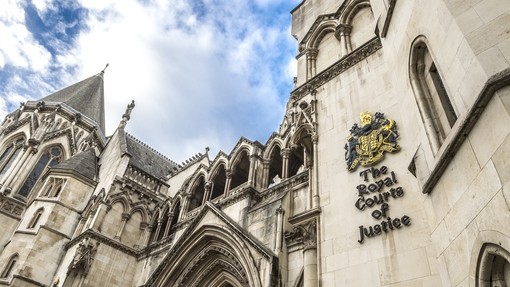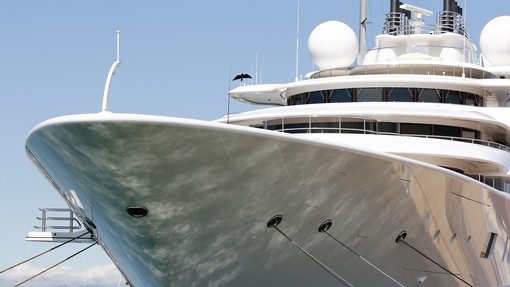In his full right

Details
This article originally featured in Sea Trial newsletter
One of the best specialists in international maritime law, a British lawyer and a partner of the Hill Dickinson law firm, Tony Allen, speaks about the knowledge that might be useful for yacht owners this year.
Are there any changes to the charter regulations?
Major changes in the Med, with an increasingly tough approach taken by EU customs authorities seeking to ensure that all charter yachts are properly commercial, charging full market charter fees with VAT at applicable rates. Far less tolerance of yachts switching between “private” and “commercial” use throughout the Med season. Duty-free fuel no longer available to charter yachts. A long-awaited “contract of carriage” is due to be published later this month which may reduce applicable VAT rates, but will involve a tighter contract allowing less flexibility of cruising itinerary.
Which flag and registration of the yacht are best for charter nowadays?
It all depends on the particular circumstances of the (ultimate) owner and the yacht. A few years ago, there were suggestions that non-EU flagged yachts should not charter within the EU. That problem has now disappeared, and both EU- and none-EU-flagged yachts are regularly chartering in EU waters. Cayman and Malta are currently most popular, with Marshall Islands close behind.
Which charter agreements better to make before the charter guests step on board of your yacht?
The MYBA Charter Agreement is still almost universal, but the new ECPY/MYBA supported “contract of carriage”, due to be published later this year, may change that.
What kind of disputes the person who gives his yacht for charter should avoid? and can never avoid?
Selecting a trustworthy “Central Charter Agent” who can administer the charters, even when the charterer is referred from a sub-broker. Ensuring the yacht is maintained to a high standard. Vetting potential charterers to ensure they are likely to follow the spirit of the yacht and leave it the way they found it. Employing a professional, enthusiastic and committed crew who will treat charterers like owners.
What if an original painting of Matisse is on board of your yacht, and a charter client splashes it with wine? How to protect the unique things on board, anything that you cannot restore or replace?
Vetting potential charterers and keeping a committed and enthusiastic crew will help ensure good behaviour from charterers. But “accidents will happen” and “strange things happen at sea”, so insurance should always be put in place for artwork and other valuable items, with insurers being kept fully advised of the fact that the artwork etc is on board a yacht. If the owner is really concerned, items can be stored, either on board or ashore, in a suitable environment. Customs rules also need to be watched, to ensure that the carriage of artworks is compliant with VAT and import/export rules.
There is an insurance always nearly for everything. But definitely, there are cases when something or someone is not very well protected unless you pay extra attention to it?
Insurance helps, but is not always effective – the primary protection of the yacht and the people and articles on board will always be provided by the crew – safeguarding the owner’s investment, along with a good management team ashore and a proactive owner who is interested in and concerned for his or her yacht.
For those who charter yachts, before the charter starts they sign a certain number of documents and papers. Which ones are obligatory and undisputable?
The charter agreement comes first, then a passenger manifest or guest list which the captain or the guest himself will complete. The standard charter agreement is drafted from the owner’s and broker’s perspective, but it is customary to use across the industry, so difficult for a charterer to negotiate changes. For longer charters and the larger yachts, we as lawyers are often asked to perform a “health check”, whether for charterers or owners. The charterer will often want the fees to be held by the charterer’s broker, whereas the owner will often want his own central charter agent to hold funds. The owner’s or charterer’s lawyer can sometimes play a more independent role as a stakeholder or escrow agent.
In terms of crew management - what’s the hardest thing to regulate and cope with, from the point of view of a lawyer? what to prepare yourself for if anyone gets hurt, for example? What if the charter clients get hurt?
Crew management is generally handled by the yacht manager or a dedicated crew agency. Crew welfare insurance should always be in place, and the insurance brokers and underwriters will then handle any damage or injury claims. The yacht’s liability (“P&I”) insurance will handle claims from charterers. Captain and others on board should be well drilled in preparing detailed contemporaneous reports of any incidents on board and should be prepared to give statements to lawyers and others attending.
Is there any way to get a good yacht for charter incognito? or avoid the scandals afterwards if you are a public person and you chartered the boat but your official income is much less than 500 000 euros per year that you paid for a week? (and none of your friends is ready to be the official charter client?)
The leading charter brokers are mostly very discreet and are used to dealing with UHNW clients who require anonymity. They will, however, require proper “Know Your Client” due diligence documentation, including full disclosure of the identity, nationality and residence of the head of the charterer’s party, both to communicate to the owner and to comply with their own regulatory rules in relation to anti money laundering. This has become far more standard practice throughout Europe and the US in the past 5 years and is generally understood by clients, just as if they were opening a bank account or instructing a lawyer or accountant.
But what if on the neighbouring yacht there’s a party going on and you are more in a reading mood, is there any law of silence at sea?
Try another place to anchor, you have the opportunity to access the remotest of regions, to escape from the tyranny of shops, restaurants, traffic and crowds. The superyacht charter world has always had a love/hate relationship with the media, but there are ways of avoiding the curse of publicity – simply by doing what boats do best, heading out to sea and finding a quiet, deserted bay where one can enjoy the experience of being “away from it all”, rather than mooring up next to everyone else’s yacht and playing the game of comparing wealth. Boats are built to be used, not to be kept in port! Ask the captain and crew how you can play a different game, cruise a different path.




